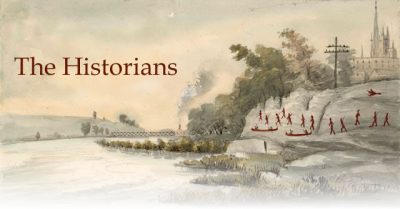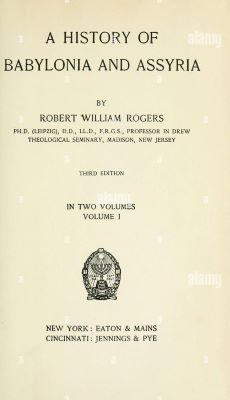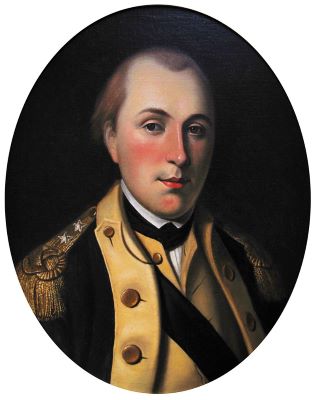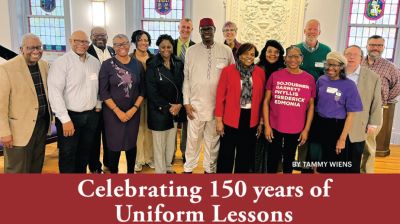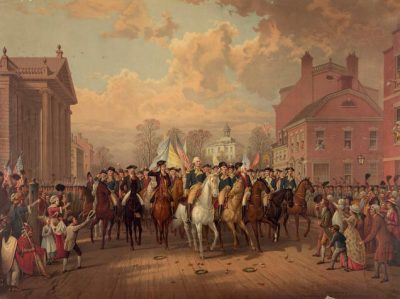
The start of the new year means the start of a series of annual advocacy, conferences, and events related to history in New York State. Some of these events target specific areas within the history community such as preservation, museums, and tourism. Since there is no New York State history advocacy day or conference by itself, it can only be addressed piecemeal. The examination of what is being done illustrates what needs to be done if the history community is to have a voice in Albany.
February 5: Preservation Advocacy Day (Legislative Office Building, Albany)
The Preservation League of New York State has an office and staff located in Albany. It has been in operation since 1974. This will be my first time participating in this advocacy day.
Join the Preservation League of New York State as we make our Voices of Preservation heard at the New York State Capitol – so our past has a future!
8:30 a.m. Program begins (LOB room 104-A). Refreshments provided.
Welcome: Jay DiLorenzo, President, Preservation League
Brief Remarks: Senator Timothy Kennedy
Assemblywoman Carrie Woerner
Assemblymember Patricia Fahy
Assemblymember John McDonald
Daniel Mackay, Deputy Commissioner for Historic Preservation, OPRHP
Legislative Brief: Erin Tobin, Vice President for Policy & Preservation
9:30 a.m.-12:30 p.m. Meet with Senators/Members of Assembly or their staff.
2019 Advocacy Priorities:
Direct Transfer of historic tax credits
Increased tax credit for small projects
Qualifying cities to use tax credit
Vacant Buildings
Urger Advocacy
12:30 p.m.-2:00 p.m. Lunch provided & opportunity to share how the meetings went.
February 6 Monuments of the Future? Alternative Approaches (The Graduate Center, CUNY, New York)
Looking for solutions to the dilemma about how to confront and constructively address ‘difficult’ places of memory and, in some cases, their absence, this panel presentation will offer real and virtual alternative approaches that use different media to promote a public dialogue about how and what we remember. The speakers represent projects and institutions that encompass local and national efforts, providing possible models as well as obstacles to public education and participation in New York City.
The final panel in the ‘Difficult Histories’ series co-presented with the American Social History Project and the Public History Collective at The Graduate Center, with funding provided by Humanities New York
I attended a previous evening conference on this topic in the fall. My reporting on that event in a blog is past due. If I am able to attend this one I will try to combine the two conferences. The issue of monuments may not apply to every community in New York but it is an issue of both historic preservation and history memory. What does each community decide to commemorate and what not to commemorate and why.
February 16 George Washington’s Birthday Symposium (Fulton-Montgomery Community College, Johnstown)
The Fort Plain Museum has been conducting annual conferences including bus tours on the American Revolution in the Mohawk Valley for several years. I think I have attended three of them as well as had a teacher program on the topic which is when I first became aware of the Fort Plain Museum. This small volunteer organization has been working tirelessly to promote not just the story of the American Revolution but history tourism in the Mohawk Valley.
This inaugural event starts at 8:15 am and will end at 3:30 pm. Admission fees are $35 for advance registration, $40 at the door and there is a discounted rate for students of $20. The admission fee includes a lunch sandwich buffet and refreshment breaks. There will be an author book signing with books available for purchase.
Edward G. Lengel, “Setting the Example: George Washington’s Military Leadership”
Bruce Chadwick, “George & Martha”
William Larry Kidder, “George Washington’s Ten Crucial Days: Trenton and Princeton”
Norman J. Bollen, “George Washington and the Mohawk Frontier”
To register, send an email to fortplainmuseum@yahoo.com with your name, phone number, email address, city and state. A check can be made out to and sent to the Fort Plain Museum, Attn: GW BDAY, PO Box 324, Fort Plain, NY 13339. It also accept credit cards by phone, 518-774-5669 (if no answer, please leave a message). Visit www.fortplainmuseum.com for details.
March 2 Historic Districts Council Preservation Conference (Manhattan)
The Historic Districts Council (HDC) is the advocate for all of New York City’s historic neighborhoods. Its mission is to ensure the preservation of significant historic neighborhoods, buildings and public spaces in New York City, to uphold the integrity of New York City’s Landmarks Law, and to further the preservation ethic.
HDC has a staff and office in Manhattan and has been in operation since 1970. I do not know what its exact working relationship is with the Preservation League of New York State is. As you may suspect, there are a number of preservation organizations throughout the state. I do maintain a separate email distribution list for them as best I can and do not distribute all my history blogs to that list. By coincidence, in the state preservation advocacy day on February 5, I have been assigned to the New York City pool. That means I will be part of the group meeting with the New York City legislators. HDC tends to focus on NYC Council members and the local landmark commission.
This day-long (9:30-3:30) conference will dive into a range of topics and of-the-moment campaigns to preserve communities and sites throughout the city, with sessions led by the participants themselves, as well as two planned panels, on engaging people with new sites in old ways, and positive and negative rezoning experiences. Participant-led sessions means people put up a signup sheet on a bulletin board and attendees sign up for the sessions that interest them.
Old Places, New Faces: Innovative Means of Engaging the Public with Historic Sites
Mathew Coody, Historic House Trust – Moderator
Lisa Alpert, Greenwood Cemetery
John Boulware, South Street Seaport Museum
Dylan Thuras, Atlas Obscura
Zoning, for Better or for Worse: How Rezonings have Negatively and Positively Affected Communities
Andrew Berman, Greenwich Village Society for Historic Preservation – Moderator
Chris Cirillo, East Harlem
Ethel Tyus, Crown Heights
The conference will be held at, 185 West Broadway, New York. You can register here.
I attended last year and wrote a blog about it.
March 4 Park Advocacy Day (Empire State Plaza, Albany)
Parks & Trails is another advocacy group with staff and an office in Albany. Its focus is on the New York States Office of Parks, Recreation and Historic Preservation (NYSOPRHP). Its advocacy is almost exclusively on the parks, both scenic and recreational, and not on the historic sites operated by NYSOPRHP or historic preservation. I have seen NYSOPRHP at historic preservation conferences. By attending the preservation and parks advocacy days one month apart I will have an opportunity to see if history and historic preservation are represented in any of the presentations or advocacy efforts. In my next blog I will be reporting on NYSOPRHP REDC awards for 2018.
Join Parks & Trails New York and the Open Space Institute’s Alliance for New York State
Parks Program in Albany help send a message of support for New York’s state parks and historic sites! As a park advocate, you’ll join other park supporters from across the state and meet with policymakers to stress the importance of supporting funding for state parks. Your efforts will impact legislators as they make important decisions about parks.
9:30 – 9:45 Hart Theatre Lounge The Egg Center for Performing Arts Empire State Plaza
9:45 – 11:00 Welcome, Orientation & Invited Speakers
11:00 – 11:45 Lunch (provided)
11:45 – 12:00 Meet Your Team (organized by NYSOPRHP regions so I am in the Taconic)
12:30 – 4:00 Appointments with Policymakers
I notice that Preservation League of New York State has a debriefing session for the entire group at the end of day whereas Parks & Trails does not.
For more info and to register contact: Sarah Braymer: 518-434-1583 | sbraymer@ptny.org.
March 7-9 New York State Council for the Social Studies (Albany)
The annual conference of social studies teachers and supervisors will be held in Albany. A detailed schedule is not available on the website at this time. I suspect local and state history will not have a significant presence at the conference. Even though history organizations are chartered through the Education Department and both schools and museums are part of the Regents bailiwick, this is one area where silos defines the arrangement. If New York promoted local and state history, then the state conference and various regional social studies conferences would be logical venues for history organizations to present and have display tables. But that is not the way of the real world and there is no state history organization advocating that it should be.
March 12 Tourism Action Day (Renaissance Albany Hotel, Albany)
The New York State Hospitality & Tourism Association (NYSHTA) is the oldest state lodging association in the country. Founded in 1887 in Saratoga Springs, NYSHTA originally represented New York State’s lodging industry. Today the association includes members from nearly all segments of the tourism industry. NYSHTA represents more than 1,100 members including hotels, motels, resorts, conference centers, country inns, bed & breakfast establishments, reservation service organizations, amusement parks, attractions, museums, ski areas, recreational facilities, historical sites, convention and visitor bureaus, chambers of commerce, colleges and universities, hospitality students and suppliers to the industry.
Bring your voice to Albany on March 12th to educate your legislators on the importance of tourism to the state’s economy. Tourism is a priority for our state, show the Legislature it’s your priority too. Come and tell your elected officials you need their support both statewide and at the local level.
Breakfast Buffet Meeting from 8:30-10:00 AM at the Renaissance Albany Hotel with Legislative
Legislative meeting for all attendees will be arranged by NYSHTA.
This represents a change. In the past, individual participants were on their own to arrange meetings with state legislators. The first time I attended I did not know that so I had to scramble. Fortunately I was able to meet the same people I had just met with on the Parks & Trail advocacy day. It always is prior to the tourism one. I learned to make an appointment for Tourism Day as I left the meeting for Parks Advocacy Day. This year I will not have to.
This advocacy day charges a fee to participate whereas the other ones do not. You can register here.
I should also add that based on previous meetings I have attended as well as the Tourism Advisory Council meetings I have attended, history tourism is not a priority.
April 7-9 Access & Identity (Museum Association of New York, Cooperstown)
The Museum Association of New York strengthens the capacity of New York State’s cultural community by supporting professional standards and organizational development. It provides advocacy, training, and networking opportunities so that museums and museum professionals may better serve their missions and communities.
MANY is located in Troy, not far from Albany, and has a staff. It has an annual conference held in different regions throughout the state. It has a lobbyist and used to have conference telephone calls with the lobbyist on what is going on. It does participate in a federal advocacy program in Washington each February along with museum organizations from around the country. To the best of my knowledge it does not have a museum advocacy day in Albany as the parks, preservation, and tourism sectors do.
The annual conference is a multiday event with concurrent sessions reflecting the different interests of the museum community. Although MANY does serve art museums, science museums, zoos, and aquariums, the presentations tend to by history organizations and museums. The registration fee will be a couple of hundred dollars and the early registration period ends February 22. Since it is multiday conference, there is likely to be lodging expense unless you have to live in the area. Typically, I attend this conference.
To register go to MANY
TBD Conference on New York State History
The image for this post comes from the Facebook page of the Conference on New York State History. According to the Facebook page:
New York State Historical Association, the most recent sponsor of the Conference on New York State History, is defunct as of March 14, 2017. See http://www.nyhistory.net
The Conference on New York State History has a history of its own. People began meeting informally in the 1890s and the New York State Historical Association was an outgrowth of the Conference of 1899 at Lake George. For many years the annual Conference and the annual meeting of NYSHA coincided, but by the 1950s the annual meeting of NYSHA no longer contained much historical content and the “College Conference” first met as an independent group in Cooperstown in 1957. The College Conference met annually, with the Office of State History (defunct 1977) as lead sponsor. The last College Conference was held at Syracuse University in 1978.
The Conference began a new series in April of 1980 at SUNY Binghamton. Stefan Bielinski of the NYS Museum coordinated the Conference through 2002, when the Conference continued with Field Horne coordinating. Mr. Horne secured partnerships with the former NYSHA, The Archives Partnership Trust, and Humanities New York (was New York Humanities Council), with NYSHA taking the lead in 2012. After the 2012 Conference at Niagara University, NYSHA attempted to coordinate the Conference but this failed by 2016, when a joint Researching New York – Conference on NYS History meeting was held at the University at Albany (SUNY Albany).
Plans for the future are unclear.
The events chosen for this post are state and regional oriented. It focuses in particular on the advocacy days in Albany which occur annually in February and March. Perhaps one day there will be a New York State history advocacy day. Perhaps one day there will be a New York State history organization. Perhaps one day there will be a Conference on New York State History. Perhaps one day hell will freeze over just as it has outside today


